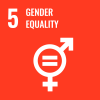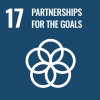Leveraging Technology to Strengthen Migrant Worker Protection: Lessons Learned from the MFA-IOM Webinar
Ho Chi Minh City - The International Organization for Migration (IOM) and the Migrant Forum in Asia (MFA) organized a webinar on Access to Technology and Fair Recruitment on 28 January 2021. Participants included civil society private sector, international organization and interested stakeholders. The webinar explored how technological solutions can promote fair and ethical recruitment and increase migrant worker protection in the wake of COVID-19.
Events unfolding with COVID-19 reaffirm how migrant workers contribute to communities and economies globally. But migrant workers also remain among the most vulnerable and have increasingly faced harsh consequences as the pandemic has closed international travel and production, trapping many migrants in situations of heightened vulnerability with limited livelihood options.
To respond to the many challenges introduced by the pandemic, many actors in global supply chains, civil society, international organizations, and others have steered to digital solutions. These efforts have led to a range of lessons learned on how to proceed with technology as a tool to strengthen migrant worker protection.
To share examples of their experiences, panelists from civil society, trade union, technology developers and government included Bheem Reddy Mandha from Emigrants Welfare Forum India, Elain Sim from the recruitment agency PinkCollar Malaysia, Leanne Melnyk from Diginex Solutions, Ohnmar Ei Ei Chaw from the Issara Institute, and Shiella Grace Estrada from the Progressive Labour Union of Domestic Workers.
While technology offers multiple avenues for migrant worker protection, panelists shared that the rush to solve human rights issues with technology pose major challenges related to accessibility, online literacy, and data protection. As questioned by Bheem Reedy from Emigrants Welfare Forum India: “Most jobseekers rely on advertisement on Facebook and WhatsApp, but the credibility of information and data generated via social media is often questionable. How can we trust digital advertisement?“
Leanne Melnyk from Diginex Solutions added: “In our experience, the best way to reach the workers are through apps, while companies are best reached through due diligence tools with a wider scope, and labour recruiters need tools to help monitor workers abroad”. Diversifying the suite of tools to address the specific needs of each actor from labour recruiter, migrant workers, employer and governments was emphasized as a necessary step for an effective use of technology.
But while the use of social media in Asian countries is high, technological solutions that work for migrant workers need to be coupled with in-person contact. As Shiella Grace Estrada from the Progressive Labor Union of Domestic Workers added: “Workers and agencies still prefer in person meetings and interviews over communicating online. The digital divide and general accessibility to technology is immense. This has to be addressed by developers when conceptualizing the applications.”
As a foundation for successful technological solutions, panelists agreed that broadspectret capcity building for all involved actors remains a necessary component to strengthen the effective use of technology.
The webinar will inform a policy brief on Access to Technology and Fair and Ethical Recruitment by the Migrant Forum in Asia.
The webinar was organized as part of an ongoing partnership between the MFA and IOM. The partnership focuses on community-based approaches to enhance migrant workers’ access to ethical recruitment, decent working and living conditions and effective remedy. More specifically, IOM and MFA will seek to develop innovative approaches to support businesses to better respect the rights of migrant workers in their operations.
For more information, please contact IOM at crest@iom.int.


























